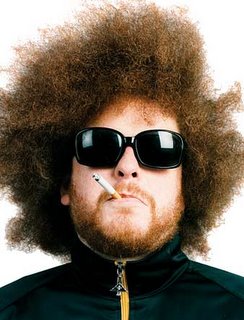As a music festival, Woodstock was pretty much a bust.
The promoters couldn't get some of the artists they wanted—John Lennon, Led Zeppelin, the Jeff Beck Group, the Doors and Roy Rogers among them. Managers insisted on booking their unknown artists as the price to get their famous clients. Iron Butterfly didn't show up. Not enough talent was contracted for three days and nights. Hired to perform with his band the Fish, at the last minute Country Joe McDonald was asked to do a solo set to fill time. Paul Butterfield, a Woodstock resident, was an 11th-hour addition.
Drugs diminished the musicians' skills. Tim Hardin was too disoriented to open the festival. John Sebastian, also pressed into service to fill an empty slot, couldn't remember some lyrics. Expecting to perform hours later than he actually did, Carlos Santana took a hit of mescaline that kicked in while he was on stage. The Who were unaware their drinks had been dosed with LSD; Roger Daltrey called their set "the worst performance we ever did." Jimi Hendrix, already hampered by a new, under-rehearsed band, seemed a bit wobbly.
Despite heroic efforts by engineers and stage personnel, at times the sound equipment failed. Amplifiers buzzed, guitar cables crackled, microphones cut out. The Grateful Dead's Jerry Garcia and Bob Weir were jolted with electricity when they approached their mikes. Ten Years After had to stop their opening number twice before they could continue. Stephen Stills, whose guitar was out of tune for Crosby, Stills & Nash's nine-minute opening number, complained about the monitors. So did Blood, Sweat & Tears. Sly Stone told the audience that some of the equipment wasn't working properly.
Often considered the start of a musical revolution, Woodstock celebrated music that would soon be thought of as part of pop's past: The opening day was dedicated to folk, which, four years after Bob Dylan went electric at Newport, was on its way out. A snippet at the very beginning of Mr. Stone's set in which he, guitarist Freddie Stone and bassist Larry Graham toy with a little funk is the rare nod to the emerging changes in soul and R&B. And in a year in which James Brown, Aretha Franklin, Muddy Waters and Stevie Wonder were active, African-American music was woefully underrepresented.
Saturday, August 15, 2009
Woodstock: But How Was the Music?
I started watching VH-1's program about Woodstock last night but didn't get to finish it. Looks interesting but I wondered, despite the hoopla, if the music was really any good or are the rose-colored granny glasses we use to view the event changing our perception?
Labels:
Music
Subscribe to:
Post Comments (Atom)




No comments:
Post a Comment